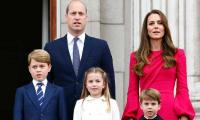ISLAMABAD: Chairman FBR Dr Mohammad Ashfaque has said the government took ‘unpopular’ and ‘politically-tough’ decisions to remove distortions in the taxation system and standardized the GST at the rate of 17 percent across the board.
He termed it the most significant reform ever introduced in the country’s history as exemptions in the past only benefited certain select groups and not the common man. The FBR, instead of streamlining system, always increased the volume of taxes.
“These unpopular decisions for standardizing the GST rate will have political repercussions but the government preferred to take such bold decisions,” Chairman FBR Dr Mohammad Ashfaque said while briefing reporters here on Friday on the salient features of the mini-budget submitted in Parliament by the PTI-led government to revive the IMF’s stalled programme.
However, he said the FBR protected wheat, flour, wheat bran, rice, vegetables, fruits, pulses, fresh poultry, fish and meat, milk, sugarcane and beet sugar, educational books and stationery, imported parts of computers, imported CKD kits and imported plant and machinery for Special Economic Zones (SEZ) from the imposition of 17 percent GST.
The government, he said, proposed withdrawal of Rs112 billion exemptions on machinery, Rs160 billion from pharma sector in adjustable mode, and there was only Rs2 billion exemption withdrawal related to common man goods.
He said that there was withdrawal of zero-rating regime on six items, including import of large ships for repair and maintenance, imported bicycles and imported formula milk. They collectively would have an impact of Rs9 billion, which would be mitigated through targeted subsidy.
There were withdrawal of GST exemptions at the import stage on 59 items, including live animals, birds and eggs, meat of cow, buffalo, sheep, goat, etc, poultry meat and fish, vegetables except those imported from Afghanistan, cereals, fish feed and animal feed, journals and periodicals, and pharmaceutical raw materials. There will be a revenue impact of Rs206 billion but the chairman FBR claimed that it would be mitigated via exemption on local supply.
There will also be withdrawal of GST exemption on local supply of 11 items, including items sold at big bakeries and big sweet shops, foodstuff served in flight kitchens, sausages and branded products of poultry meat, locally-produced rapeseed, mustard seed, sprinkler, drip and spray pumps. There is withdrawal of GST exemptions on 19 items at the imported stage of capital goods such as power generation, power transmission, renewable energy like solar, wind and nuclear energy, mining and extraction of minerals, CKD kits for a single-cylinder engine having revenue impact of Rs82 billion.
The FBR proposed a standard rate of 17 percent GST on 42 items, including locally-manufactured cars above 850cc, Hybrid Electric Vehicles above 1,800cc, import of electric vehicles from 5 to 17 percent, import of re-meltable scrap from 14 to 17 percent, dairy items sold in branded packaging from 10 to 17 percent, branded cereals from 10 to 17 percent, silver, gold and jewelry from 1-3 percent to 17 percent and various types of plant and machinery from 5-10 percent to standard rate of 17 percent having revenue impact of Rs30 billion.
For jacking up the GST on import of cell phones, the FBR proposed no changes for mobile phones having price of $30 per set, from $30 to $100 per set and from $100 to $200 but the FBR increased the GST rate on bracket of mobile price from $200 to $350 to standard rate of 17 percent. For example, imported mobile phones having price of $1,300 per set, the GST was increased from Rs9,270 per set to Rs42,000 per set having revenue impact of Rs7 billion.
He said that the impact of the removal of GST exemptions and other taxation measures would be materialised after six months but later on confided that the FBR’s annual tax collection would touch Rs6 trillion till the end of the current fiscal year. He said the FBR proposed jacking up the withholding tax on the telecom sector from 10 to 15 percent and it was resisted by some cabinet ministers but finally it was unanimously decided that this tax would be increased to compensate the losses incurred to the FBR in the aftermath of honorable courts order not to collect tax from the telecom sector taken on the eve of the last budget.
With regard to the submitted Finance Supplementary Bill 2021 before parliament, he said the IMF demanded to remove tax exemptions to fetch Rs700 billion but they convinced the Fund to curtail the removal of GST exemptions to the tune of Rs343 billion at this stage. On eve of the sixth review for accomplishing the review talks with the IMF for the release of $1 billion tranche, he said that the IMF made a rule of thumb that there should be standard rate of 17 percent across the board in order to generate the desired revenues for running the government without borrowing any amount and then the government would be able to implement its manifesto.
In most of the cases, he tended to agree with the IMF as it was difficult to defend some exemptions because most of them were obtained by vested groups by exerting pressures in the past. The IMF argued that if all exemptions were taken into account, then Pakistan should be the most industrialised country but it was not the case because these were the incentives given to powerful lobbies.
He said that the government proposed withdrawal of Rs160 billion GST exemption on raw material of pharmaceutical sector for documentation of economy and bringing the whole supply chain at radar screen of tax authorities to curb counterfeit. The imposition of 17 percent GST at import stage of raw material of the pharma sector would bring down prices of medicines in the domestic market by 15 to 20 percent because of the availability of input adjustment through Sales Tax refunds. He said out of Rs700 billion, the pharma sector's Rs530 billion were undocumented. He went on to say that Rs35 billion input tax was passed to patients on account of packing, utilities, etc. If the whole supply chain is brought under documentation, then Track and Trace system would help to fight counterfeit drugs.
“We expect that the government would provide Rs35 billion GST refunds from its own pocket,” he said and added that the pharmaceutical sector could face liquidity issue for one or two months but it would help remove the existing anomalies on taxation system. He said that in the past whenever the IMF demanded removal of tax exemptions, the FBR used to impose new taxes. However, this time the IMF made a point that without removing distortions in the tax system, the dream of achieving documentation of economy could not be materialised.
He also repeated the claim that the removal of GST exemptions would have an impact of Rs2 billion on lives of common citizens as the standard rate of 17 percent GST on match boxes, energy savers and mustard oil would have a very limited impact on price increase or inflationary pressures out of the total 53 items of Sensitive Price Index (SPI). When this scribe inquired why the FBR did not prefer to conduct an independent analysis from any credible institution like PIDE, IBA or LUMS to gauge removal of GST exemptions on overall inflationary pressures while comparing with 460 items falling into the Consumer Price Index, the chairman FBR conceded that then such study should analyse impact of removal of GST exemptions on public finances and tax-to-GDP ratio. He said the government had moved towards Value Added Tax after removing these exemptions and in the future roadmap, the standard rate of GST would be brought down from 17 to 16 or even 15 percent. Yes, the existing rate of 17 percent GST is on the higher side, he added.
He said that the documentation drive would help the FBR to jack up revenues on the Income Tax front as without bringing whole supply chains into the tax net, the FBR could not achieve the objective of broadening of tax base.
||
‘Silent revolution on the march’: PM launches Rs400 bn health insurance programme in Punjab
Ag APP
LAHORE: Prime Minister Imran Khan Friday said a silent revolution was in the making through the government’s initiative of house construction loans by banks for the salaried class after the government removed all the impediments.
Addressing the launching ceremony of Naya Pakistan National Sehat Card here on Friday, he said people had applied for loans worth Rs260 billion, out of which Rs110 billion worth loans had been approved and Rs34 billion disbursed already.
He said under the Kamyab Pakistan Programme, around 2 million people had been given interest-free loans for house building. Moreover, under the same programme, a loan of Rs0.5 million was also being given to farmers and others to establish their own businesses. He launched the distribution of Naya Pakistan National Sehat Card among the entire population of Punjab province, enabling every family to avail medical treatment of up to Rs1 million a year at both government and private hospitals.
Calling it a “revolutionary step”, the prime minister said, “neither everyone can take, nor any of the governments in the past took such a bold decision of providing Rs1 million health insurance to the entire population”.
He lauded the Punjab chief minister, health minister and the whole team involved and said the Punjab government had moved on the course which would uplift the country, in pursuance of the forefathers’ “vision to make Pakistan an Islamic welfare state”.
He said under the programme 30 million families would benefit from the health insurance facility which would cost Rs400 billion to the government. He said our forefathers had dreamed to make Pakistan an Islamic welfare state but, unfortunately, it could not be developed on that course.
Citing the state of Madina as the first welfare state, which fulfilled all basic responsibilities of its citizens, the prime minister said unfortunately, no such state was found in the Muslim world rather the Scandinavian states were close to that model.
Naming Denmark, Norway and Sweden, the prime minister said a state always believed in inclusive growth and had compassion for the weaker segment. He said any individual or nation abiding by the teachings of Allah Almighty would get His blessings.
He said all the Scandinavian countries did not have more resources than Pakistan, but they were more prosperous by having adopted the model of a welfare state. “Today, the Punjab government took such a step to put the country on the course of uplifting this nation.
“We want to make Pakistan a state for which it was established. If we don’t opt that course, it will be great treachery with the Indian Muslims who had voted for it,” he remarked.
He said some leaders in the past claimed to make Pakistan an Asian Tiger, which could in no way be greater than the idea of a welfare state like Madina. The prime minister told the gathering that the time would prove that initiative of Sehat Card, involving almost equal funding, would have far better outcomes than the Metro Buses or Orange Train. He said all families across the Punjab province would get the Sehat Card by March 2022 and also resolved to replicate the model in Balochistan, Azad Kashmir and Gilgit-Baltistan.
The prime minister said the Sehat Card would lead towards the development of health infrastructure across the province as it would attract the private sector to build hospitals even in remote areas.
He said the government would close down the government hospitals in far-flung areas where doctors did not want to be posted, to save the cost. He said the government would incentivise the private sector by allowing duty-free import of their equipment to expand the network of private hospitals.
Through the Ehsaas Ration scheme, almost 54% of the population was being given a 30% subsidy on the purchase of ghee, flour and pulses. Earlier, the prime minister also distributed Sehat Cards among the beneficiaries.
In his address, Punjab Chief Minister Sardar Usman Buzdar said the provincial government had allocated Rs399 billion health budget compared to Rs169 billion from 2013-18. He said 23 big hospitals were nearing completion, the up-gradation of 158 health facilities had been completed while 78 projects were in the pipeline. He said the provincial government was spending Rs37.5 billion on the purchase of medicines. Moreover, he said the government would soon fulfil its commitment by filling 100,000 vacancies.
Kasuri urged authorities of Pakistan and China to pull their resources to defeat forces seeking to disrupt the...
IHC said that several people had not returned the cipher copies they had, and asked if it meant it was right for the...
Gilani gave floor to Leader of Opposition Syed Shibli Faraz, who insisted that with unity they could take country...
Match witnessed intense action and dramatic twists, keeping fans on the edge of their seats until the final ball
Apex court bench was reconstituted after Justice Yahya Afridi recused himself from hearing the case earlier this month
ECP issued a notification in this connection pursuant to orders passed by LHC







